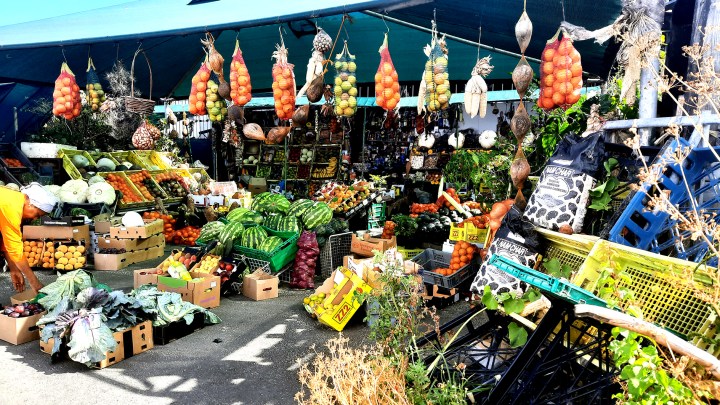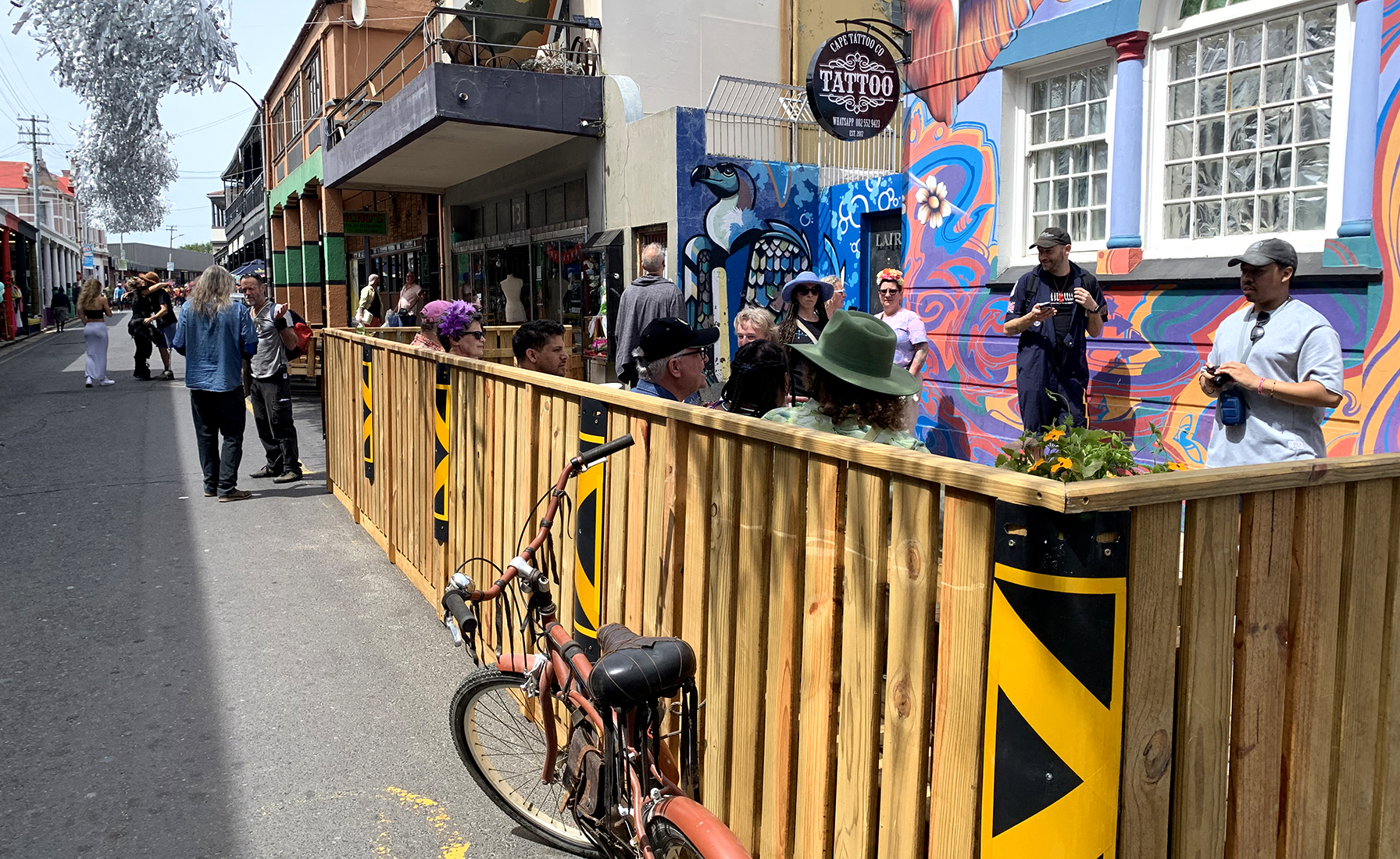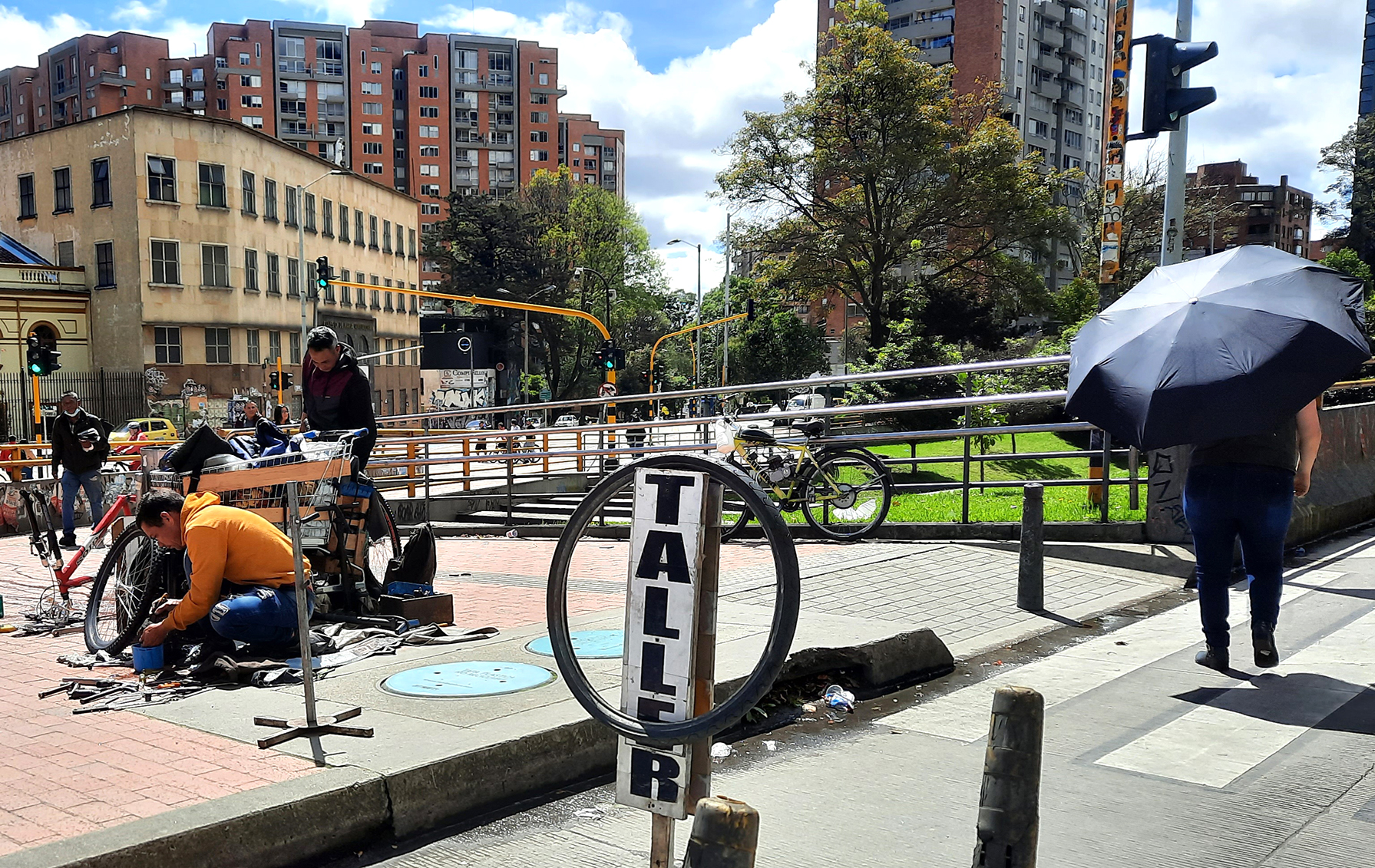PUBLIC SPACE OP-ED
South Africa’s public spaces need to be reimagined to come alive and create more safety

It is time to reimagine how public space can come alive, create more safety rather than less and be regulated in a way that promotes its use for a broad range of activities.
When we share our frustration at the over-regulation of public space in South Africa and the need for alternatives, the response we tend to get is fear of chaos.
There is a widespread perception that law enforcement-driven regulation is the main way to manage urban public life. In our cities, this often means controlling who uses the space and how it is used under the pretext of safety and order. Yet, public spaces are often unsafe and unkept exactly because they sit idle, are underutilised or lack public ownership. Often, shopping malls end up fulfilling the role of public space.
The cumbersome, expensive, and bureaucratic processes to obtain permits to use public space — whether for events, trade or other purposes — have historical roots in apartheid planning. This legacy of a legal and policy culture focused on order and control has persisted — sometimes directly sustained by legislation passed before 1994, and other times indirectly influenced by the way that public space continues to be regulated and managed.
Read more in Daily Maverick: Building safe public spaces – a privately public affair
Virtually the same onerous regulations apply whether you are organising the World Cup or a small neighbourhood initiative, such as a temporary road closure around a small block so that businesses can trade on the street or children can play safely for a few hours.
Similarly, the informal economy is notoriously regulated in such a way that constrains economic activity across our cities. Research confirms that the lack of an informal economy is one of the key drivers of our high levels of unemployment. South Africa is an extreme outlier when measured against almost every other comparable economy, where the informal economy often makes up more than half of total employment. In those countries, unemployment rates tend to be less than 10%.
But there are alternative approaches to bringing energy, vibrancy and economic activity to public spaces.
Starting at the neighbourhood level
Many of us have ideas about how to improve the streets outside our homes or workplaces. While some residents are very active with testing ideas on the ground (see the Mowbray CAN Facebook page for great examples), others might not have the time, resources or energy to do so.
City Improvement Districts (CIDs) have increasingly become important players in shaping the public realm. Even though cleaning and safety remain their primary functions, many are pushing the boundaries of their mandate to include issues such as the improvement of public space, which itself also effectively contributes to safety. They include interventions to address homelessness, informal trade and public amenities.
We recently worked with the Observatory Improvement District (Obsid) to start making the precinct more pedestrian-friendly, for example. The idea was to test various interventions in the public space to showcase its potential and to roll out longer term plans incrementally to make it a safer and more inviting space for businesses, residents and visitors.
Public markets in neighbourhoods can also be a powerful tool to both activate spaces and unleash their myriad benefits. As we have written before, Bogotá — Colombia’s capital city — has a city-led fresh produce market programme that manages 19 markets on public land. These markets serve and are shaped by their specific neighbourhoods.

A parklet was set up on Lower Main Road, Observary as a temporary intervention to make it more pedestrian friendly. (Photo: Local South)
Regulation that facilitates
Last month, Colombia’s Deputy Minister of Finance Diego Guevara visited Cape Town for the Inequality, Work and Nature conference, and spoke about the ‘popular economy’, a banner his government is using to promote economic development. The framing helps to widen what we imagine as the informal economy, encompassing a wide range of small businesses and players, and explores how it can be encouraged.
It’s not that we should do away with regulation, but we need regulation that facilitates the fair, safe and inclusive use of public space for a variety of purposes, rather than laws or processes designed chiefly to prevent its use.
Dynamic public space makes business sense
In this regard, collaboration with the private sector can be mutually beneficial. This may entail incentivising the inclusion of public space interventions in certifications for green buildings, for instance. After all, businesses will suffer if our cities fail to become more resilient. If managed well, this can result in public value for users and businesses alike, without it being ruled by private priorities which may keep some people out.
The V&A is a good example of where the private sector is taking the lead in improving spaces for a broader audience. It is common to see people of all backgrounds enjoying the common spaces on weekends.
Thireshen Govender from UrbanWorks explains how in less well-resourced areas, there are other examples of businesses clustering to create new forms of well-managed and regulated public spaces. Locally driven by entrepreneurs, these could be seen as alternative types of improvement districts.

During Bogota’s weekly Ciclovia (Open Streets) programme, informal traders use the oppurtunity of increased foot and bicycle traffic. (Photo: Local South)
Safety as an unintended consequence
In South Africa, we tend to associate public space and economic activity with informal practices and therefore imperfect, even dangerous, activities. Paula Triviño, advisor to the Colombian Deputy Minister of Finance, points out that people often associate informality with crime and disorder, but that it is precisely those spaces with activity, people and eyes on the street that are safest. This is true in Bogotá, in Cape Town and in most other cities of the Global South.
Thinking about the multi-functional nature of public space can help to unlock opportunities. The Colombian capital, for instance, uses its weekly Ciclovia programme, where 100km of streets become car-free and de facto public space, to give informal vendors an additional opportunity to trade.
In other instances, there are tacit agreements between residents and vendors to create space for all to use, because there is a recognition of the value that is created in terms of safety and convenience. Ciclovia is well known as a safe space in Bogotá, a city that struggles with crime just like South African cities.
Any such initiatives would certainly take a different form in Cape Town. It is time to reimagine how public space can come alive, create more safety rather than less and be regulated in a way that promotes its use for a broad range of activities. DM
Marcela Guerrero Casas and Dustin Kramer are the co-founders of Local South. Located between Cape Town and Bogotá, they work to create sustainable, dynamic and livable cities in the Global South.
This work was supported by Heinrich Böll Stiftung Southern Africa.




















 Become an Insider
Become an Insider
Great article Marcela and Dustin. I’m so glad to see Observatoryand OBSID doing some pioneering work. We need more walkable, pedestrian friendly neighbourhoods and suburbs. Let’s get people out of their cars and onto their feet. The benefits are endless.